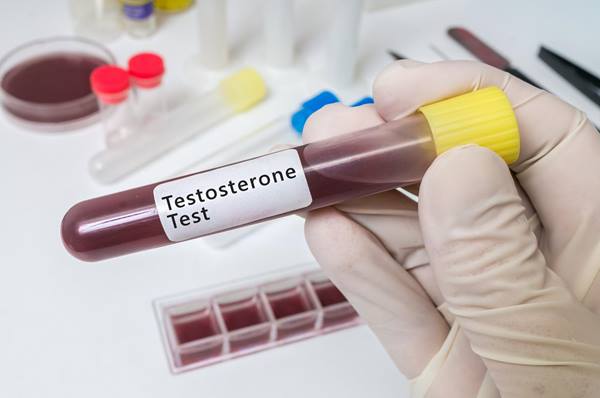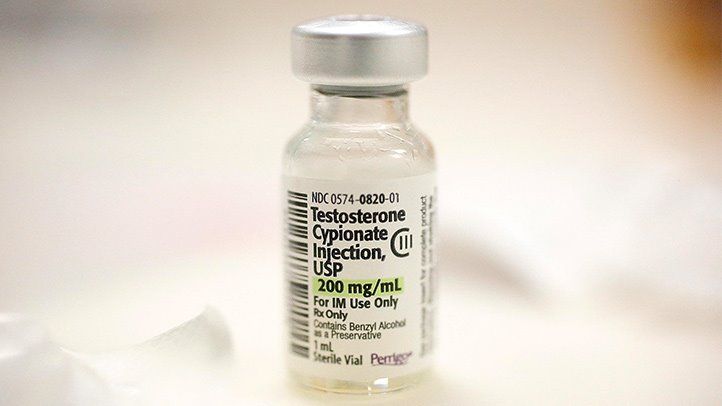Many men go through testosterone replacement therapy at some point during their life. Testosterone is an important hormone related to the development of a man’s sexual organs and muscles, bones, and even cognitive performance. Low testosterone means a loss of performance in some of these areas. We’re going to look at why men need testosterone and at five common myths that often make a man decide not to go ahead with testosterone replacement therapy.
Why Men Need Testosterone
There are specific health reasons related to why men undergo testosterone replacement therapy. Testosterone and other hormones instruct the organs on what to do. So, when many get sexually aroused, it’s testosterone telling the relevant systems in the body to achieve this. However, there is more to testosterone than merely being an aid to great sex.
Testosterone – as we have mentioned above – is also helpful in areas of development, especially those such as facial hair growth, which is predominantly a male trait. Next, we’ll talk about the five top myths that tend to put men off getting replacement therapy, along with some countering facts.
5 Common Myths about Testosterone Replacement Therapy
The common myths surrounding testosterone replacement therapy tend to be down to miseducation or ‘old wives’ tales’ that have perpetuated across the years. The following are the most prevalent and those most likely to deter a man from seeking treatment.
1: Only Old Men Experience Testosterone Loss
There is a common belief that ‘old men only experience testosterone loss’. While it is so that men over the age of 50 are more likely to experience a slowing down of testosterone production, the problem is not only one for them. Men as young as 30 have experienced testosterone loss – we’ll go into the details in the next section but suffice to say there are lifestyle choices that can affect – and in rare cases, even younger.
It should be said that the production of testosterone in the body will slow down as we age. That’s to be expected, as are many other age-related changes to our biological makeup (think of women and menopause, for example). Testosterone loss is a problem that can also indicate other ailments, so let’s now talk about why this problem is not only age-related.
2: Testosterone Deficiency is Always Age-Related
This is simply untrue, as we said above. In fact, many diseases and illnesses, habits and lifestyle choices can be factors in lowering testosterone production. Testosterone deficiency often manifests in the form of erectile dysfunction. However, this problem can also be a symptom of other illnesses. Let’s have a look at some of the causes of testosterone loss so you can understand better why it occurs in younger men, too, starting with illnesses that can cause ED:
- Heart disease can be a contributor to testosterone loss.
- Diabetes is known to be associated with testosterone reduction.
- Obese men are more likely to suffer from ED.
- High blood sugar is a cause of ED.
- Certain types of cancer.
Now let’s move away from the medical causes and look at those associated with the lifestyle:
- Smoking is linked to low testosterone levels.
- Excess alcohol will also influence testosterone production.
- Lack of exercise will cause you to put on weight and may lead to a reduction in testosterone production.
- Recreational drug use
- High cholesterol due to poor diet.
At this point, some prescription drugs can also lead to ED, adding another reason for a medical consultation if you see the symptoms.

Our final section here looks at a set of influences that are emotional rather than physical, and that can lead to ED:
- Depression and anxiety.
- Stress from social concerns or work.
- Relationship conflicts.
- Religious or cultural problems.
- Worry about sexual performance.
Any of the above can cause a hormonal imbalance in the body that brings about a lower testosterone production level and ED.
3: Testosterone Replacement Increases Sperm Count
Another common misconception is this one, but in fact, the opposite is true. Testosterone replacement therapy will not increase sperm count. Some forms of treatment may, in the early stages at least, reduce sperm count. As treatment takes you back to ‘normal’, there is no reason it should improve sperm count. However, it will restore your libido and ensure you can perform sexually once more, as well as increase muscle strength, bone density and give you back a feeling of well-being.
4: Cancer and Heart Disease are Caused by Testosterone Replacement
We have already seen that cancer and heart disease can be at the root of ED. There was once speculation that testosterone replacement therapy could cause these ailments. There is no evidence to suggest that this is true, despite many thorough studies being carried out.
5: You Can Buy Over the Counter or Mail Order Testosterone Treatments
Our final myth is that over-the-counter and mail-order testosterone replacement treatments can be successful. They cannot restore testosterone levels, but a medical procedure involving controlled substances and accuracy is necessary. We strongly advise men to use testosterone supplements for whatever reason to refrain from doing so as they may be more harmful than beneficial.
Conclusion
We can conclude that men’s health overall is heavily influenced by testosterone levels. There are many reasons why the production of testosterone varies or reduces during one’s lifetime. The effect of this can be quite considerable and lead to a lack of sex drive and some other troublesome problems.
If you ignore the myths above and talk to a doctor, should you be feeling ED and testosterone loss symptoms, there will be a safe and recommended procedure that can get you back to feeling great once more.
